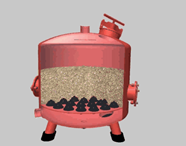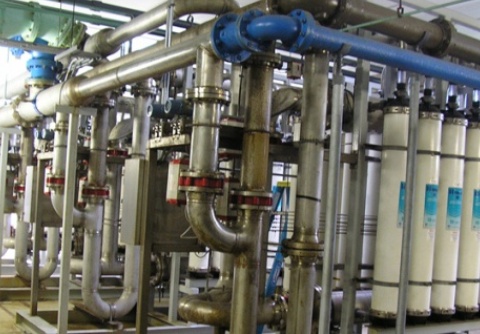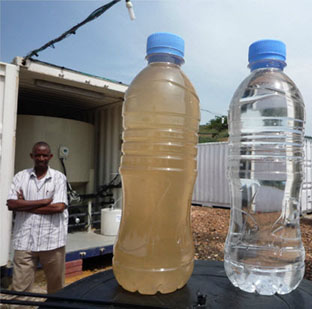Screens, Disks, Sand Filters, and Membranes
Following sedimentation, which processes the primary water treatment, filtration is a more accurate process, which takes care of the fine filtration.
Filtration is a generic name for the degree of removal particles.
Filtration is a water treatment device for removing solid or colloidal material of a type that cannot be removed via sedimentation. Such filters can range from Screen Filters to Disk Filters, which have a filtration rate from about 800 down to 10 microns.
A media filter is a treatment device or structure for removing solid or colloidal material of a type that cannot be removed by sedimentation.
The solid or colloidal material can be removed by higher filtration to degree 15 microns or better by the use of gravity rapid rate or a bed of sand (pressure type). Crushed granite, or other material, can be used to filter for diverse purposes, such as drinking water, irrigation, storm water management, aquaculture, swimming pools, and other applications.
Most major water treatment plants in the world use filter media in the process for producing drinking water.
There are some important factors for efficient media filter design, such as filtration rate, media filter type, and layers.
Using suitable chemicals aids upstream, such as coagulation and flocculation, significantly improves the media filters’ performance.

Filtration By Using Membrane Technology
The membranes are divided into two major groups:
- Filtration Membranes – carrying out physical filtration to very high quality up to 0.002 microns. This is done by the technology of Microfiltration (MF) and Ultrafiltration (UF).
- Desalination Membranes – this technology treats the water to an ion level separation.







